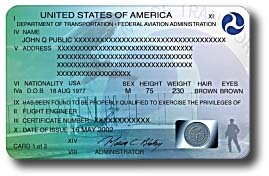USA/FAA Biennial Flight Review (BFR)

The flight review (previously the Federal Aviation Administration referred to this as a biennial flight review, usually abbreviated BFR) is a review required of every active holder of a US pilot certificate at least every two years. The flight review consists of at least 1 hour of ground instruction and 1 hour in-flight with a qualified instructor.
Before being able to act as pilot-in-command (PIC) a pilot must have completed a flight review within the previous 24 calendar months. The FAA and instructors are quick to point out that it is not a test. There is no pass or fail criteria, although the instructor giving it can decline to endorse your log-book that a flight review has been completed.
Transitioning to a high-performance or complex aircraft is one way to increase your skills as a pilot and add new makes and models of aircraft mastered to your logbook.
( http://www.aopa.org/members/files/topics/transitioning.html ).
If I let my medical expire, is there a penalty if I wait to renew it?
No, in fact nothing in the FAA's Part 61 regulations requires a pilot to continuously maintain a valid medical certificate. You might have a good reason for delaying and not renewing right away because of an existing medical condition, or maybe your personal "to do" list doesn't leave room for a visit to the local aviation medical examiner at that exact time.
The only pilot restriction you'll be subject to by not renewing your medical certificate is that you will not be able to act as PIC within the privileges of a recreational pilot and higher (excluding sport pilot privileges) or as a required crewmember such as a safety pilot. (from AOPA)
You can keep your paper pilot certificate forever, but if you want to continue flying, sooner or later you'll likely have to get one of the new, tamper-resistant, plastic certificates.
 he FAA last Friday issued a proposal that would require pilots to get a plastic certificate within two years (five years for other airmen certificates) after the regulation is finalized in order to continue exercising their airmen privileges.
he FAA last Friday issued a proposal that would require pilots to get a plastic certificate within two years (five years for other airmen certificates) after the regulation is finalized in order to continue exercising their airmen privileges.